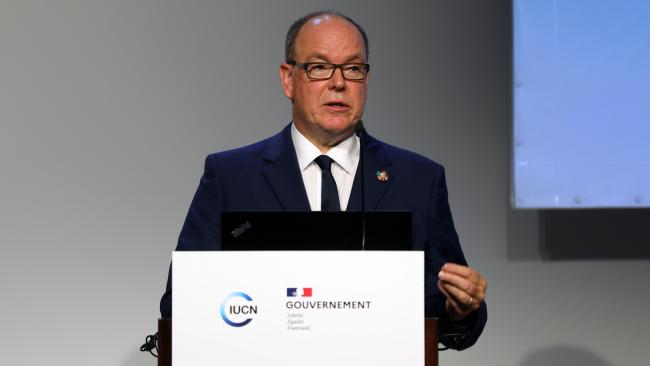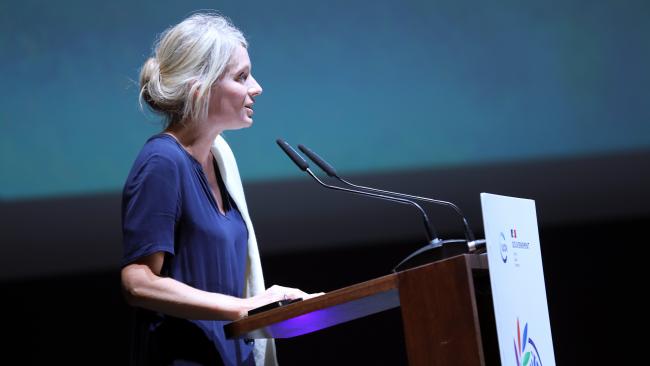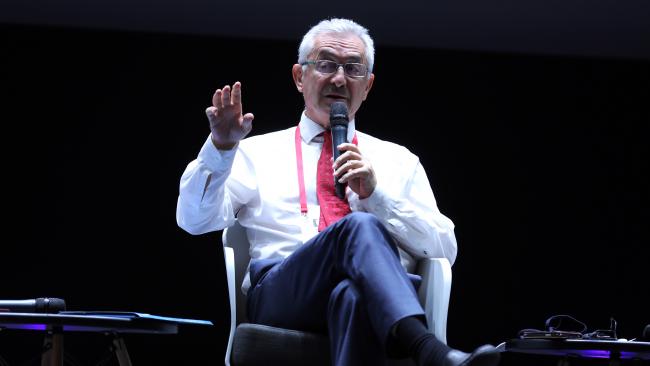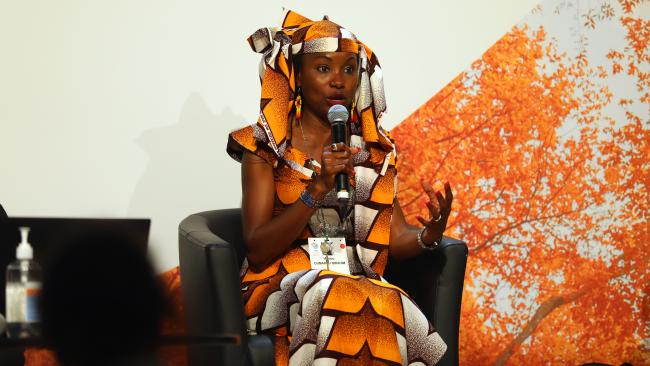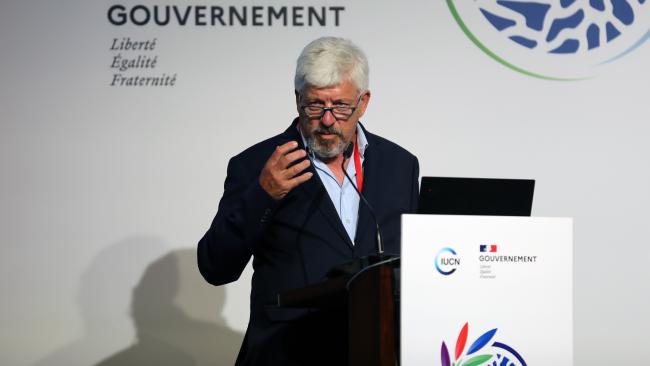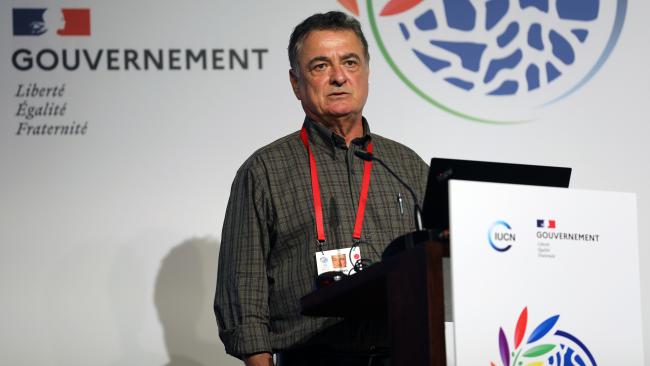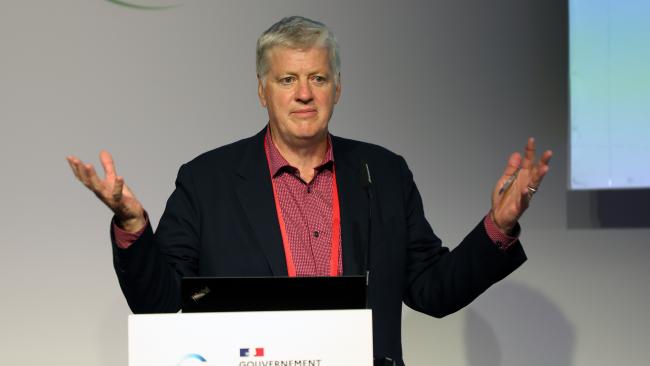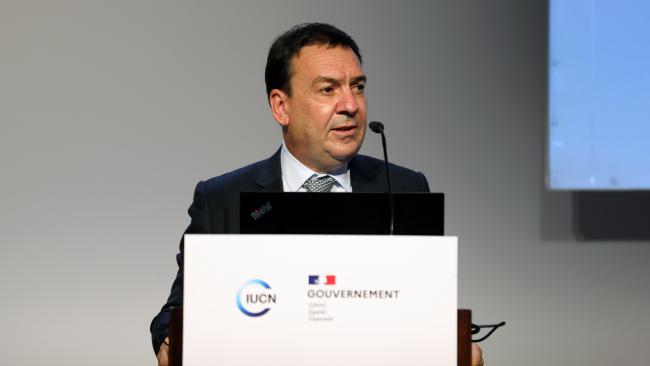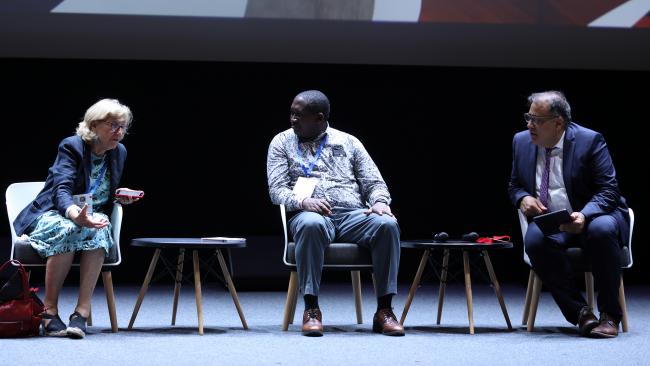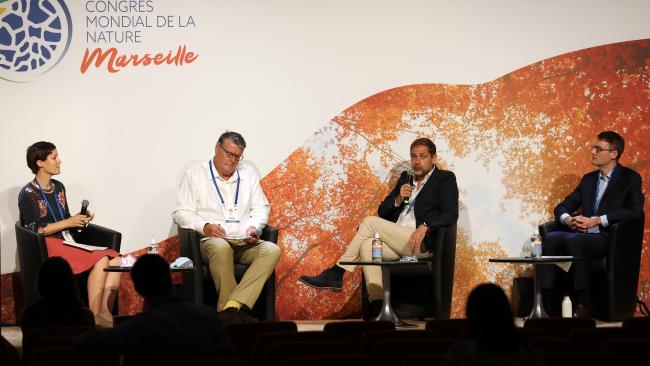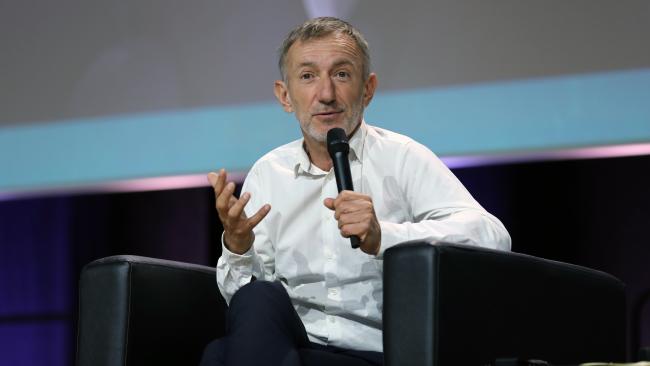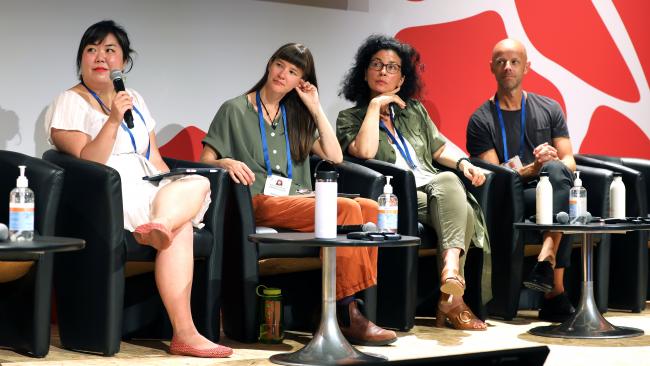Forum Closing
During the closing session of the Forum, participants heard concluding remarks from each of the thematic sessions.
Bérangère Abba, Secretary of State for Biodiversity, France, lauded the Forum for sending a clear message on the need to act urgently.
Closing the session, Bruno Oberle, Director General, IUCN, highlighted that the Forum will publish a manifesto organized around core messages on climate, biodiversity, pandemic recovery, and the economy.
Closing Plenary: Advancing Rights and Inclusive Governance in Conservation - The Path Ahead
The closing plenary focused on the rights of vulnerable groups in conservation. Panelists and participants highlighted barriers to Indigenous Peoples’ and youth involvement in the IUCN Congress, including exclusion from plenary, registration fees, and visa requirements. Participants also noted that conservation should not exclude occupants from their lands and territories and cautioned against land-grabbing projects.
Closing Plenary: Realigning Economy and Conservation - Towards a Systemic Change in Economics and Finance
Participants stressed that conservation cannot be achieved in an economic system that rewards behavior, which destroys nature. They emphasized systemic shifts are necessary; highlighted the need to mobilize resources from all sources and address institutional failures; lamented that short-term profit is prioritized over humanity’s long-term survival; underscored that the biodiversity crisis is a risk, but also an opportunity, for business; and emphasized the interconnectedness of the issues under discussion.
Closing Plenary: Conservation Knowledge for Conservation Impact
The closing plenary featured two panel sessions, which discussed the application of leading evaluation techniques to conservation practice, and conservation knowledge tools and programmes.
Discussions focused on the use of counterfactual techniques—assessing what would have happened if without interventions—to monitor the impact of conservation interventions. Participants noted more analysis along these lines will be needed as conservation is ramped up over the next two decades. They further discussed tools developed by IUCN to foster and incentivize further conservation impacts.
Closing Plenary: Bending the Curve for Landscapes of the Future
In this closing plenary, participants stressed that benefits of nature conservation are long-term, but costs are borne immediately and by only a few. They also discussed the necessary steps to engage the mining industry; highlighted the idea of relationship and the need to consider how to relate to everything, including nature; and stressed that the landscape approach is appropriate for a nature-based recovery.
Closing Plenary: A Blue Breakthrough
In the closing plenary, participants focused on the essential role that oceans play in human health and livelihoods. They highlighted the need for prioritizing traditional conservation methods over industrial fishing practices; discussed engagement with local coastal communities and waste reduction within the tourism sector; highlighted the importance of wetlands to ocean health; and underscored interconnectedness of oceans to climate mitigation and adaptation.
Closing Plenary: Mobilising Nature & Society to Address the Climate Emergency – The Way Forward
Participants in the closing plenary: called for solidarity, cooperation, and integrated responses; cautioned that extreme weather events “will happen everywhere if we don’t act appropriately”; called for closer partnerships and clarity around carbon offset rules; and urged embedding science-based biodiversity targets into climate and economic policies.
Closing Plenary: Global Action to Conserve Freshwater
Discussions focused on the need for water data and stories to capture the imagination of policymakers and the public, as well as on the importance of educating stakeholders to induce behavioral change. Panelists also considered: the need to focus on the multiple benefits of wetlands; adopting an integrated, catchment-based approach to freshwater; and the politicization of water resources due to sovereignty and transboundary management challenges. It was noted that achieving SDG 6 (clean water and sanitation for all), already elusive before COVID-19, has been further compromised.
Restoring the Fabric of Nature and Humanity – Peace, Conflict and Environment in a Post-Covid World
This thematic dialogue discussed the role that well-managed natural resources can play in a world that is well connected but divided. Helping mitigate environmental pressures linked with conflicts is increasingly important as the number of countries involved in violent conflicts is the highest in 30 years. Participants discussed how conservation can have a positive impact on peace and security and deliberated on the available tools to better govern, manage, and conserve natural resources.
Green Finance
This session addressed green finance, focusing on ways to increase private sector financing to achieve global sustainability goals. Participants provided insights from their organizations’ initiatives and partnerships, and exchanged opinions and ideas on the best ways to unlock and scale up financing for nature to achieve the required transformative change.
Nature-based Solutions Partnerships: Moving Together from Words to Action
July 2020 saw the successful launch of the IUCN Global Standard for Nature-based Solutions, including relevant capacity-building activities, and enabled stakeholders to learn about the framework and apply it around the globe. The session focused on strengthening existing commitments and building new partnerships for the Global Standard’s continued success.
10 Proposals for a Sustainable Planet: Youth Voices for a New Deal for Nature and People
This session focused on the vision of youth for the post-2020 global biodiversity framework. Building on various youth forums’ collective experience, a diverse set of participants tabled their priority suggestions to achieve transformative change. The session concluded with the articulation of ten proposals for a sustainable planet.
Selected Photos from the Panel Discussions
To receive free coverage of global environmental events delivered to your inbox, subscribe to the ENB Update newsletter.
Closing Plenaries

View of the panel during the Closing Plenary: Realigning Economy and Conservation - Towards a Systemic Change in Economics and Finance

L-R: Moderator Nigel Topping, UN High Level Climate Action Champion, UNFCCC COP 26; Ivete Maibaze, Minister of Land and Environment, Mozambique; Jochen Flasbarth, State Secretary at the Federal Ministry for the Environment, Nature Conservation, Building and Nuclear Safety, Germany; Nisreen Elsaim, Chair, UN Secretary-General Youth Advisory Group on Climate Change; and Rohitesh Dhawan, CEO, International Council on Mining and Metals

Jochen Flasbarth, State Secretary at the Federal Ministry for the Environment, Nature Conservation, Building and Nuclear Safety, Germany

Clockwise from left: Christian Frutiger, Ambassador, Swiss Agency for Development and Cooperation; Andre de Freitas, President, Renova Foundation, Brazil; Abdoulaye Sene, Executive Secretary, 9th World Water Forum; Callist Tindimugaya, Ministry of Water and Environment, Uganda; and Adjany Costa, Advisor to the President of the Republic of Angola
